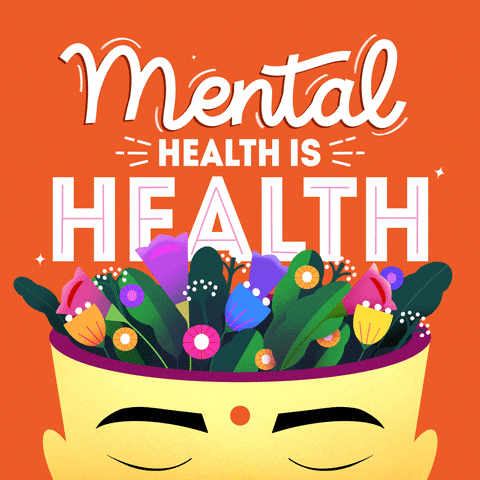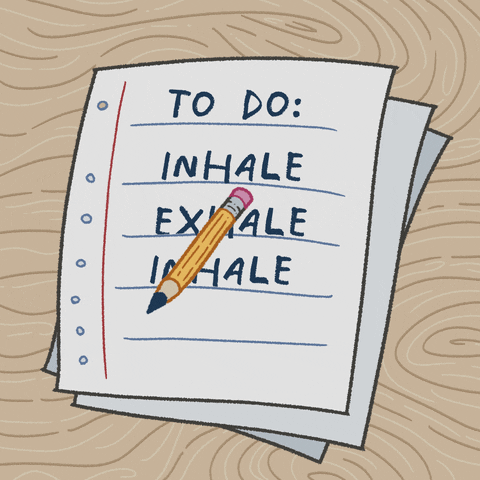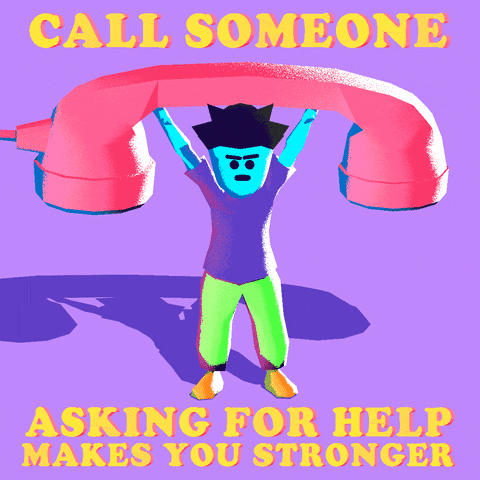
MENtal Health
Guys, let's talk about (men)tal health.
We Think Twice™ Insiders say that we need to talk more about men's mental health. Experts agree that: 1) young people struggle to know when to ask for help and 2) men ask for help less frequently than other genders.
Mental health struggles are normal, and you’re not in it alone. Learn more about when you should reach out for help, how to get support from others, and how to manage difficult emotions when they come up.
Content warning: this page discusses mental health topics that may be difficult to read about.
It's important for men to be vulnerable so that they can form intimate and healthy relationships with other people. Also, when men talk about their mental health more, it normalizes men having mental illnesses and gives way for more men to get the treatment they need.
– WTT™ Insider
Mental Health Challenges
Typical Emotional Ups and Downs
-
Feeling sad or down for short periods of time (like a few days or even a week), particularly after a stressor like a bad grade or a break-up.
-
Worrying occasionally about life events (making new friends, applying for college, paying for stuff).
-
Getting a little stressed before big life events (like exams, a competition, or asking out a crush).

Signs that you may need to ask for help
-
Feeling sad and/or stressed most of the day for 2 weeks or more. These feelings may affect relationships or make it hard to get things done.
-
Avoiding things you usually like to do or parts of everyday life (like hanging out with friends, going places, or talking in class).
-
Falling behind in school or having trouble getting tasks done at work or school.
-
Sleeping too little (<8 hours) or too much (>10 hours) most nights, or having trouble falling asleep, or staying asleep.
-
Using substances like alcohol to numb or distract yourself from what you feel.
-
If you are having thoughts about wanting to die or hurt yourself, regardless of how severe, you should seek help immediately. You can use the 988 Suicide & Crisis Lifeline to talk to someone about how you are feeling for free, 24/7.

Strategies for Managing your Mental Health
These strategies work differently for everyone. It is important to find ones that work for you depending on the level of your mental distress. Try and create a mix that includes both self-management and people you can turn to for help.

Ways to self-manage your mental health
-
Try mindfulness or breathing exercises. There are free apps that offer guided and unguided meditations.
-
Do things you typically enjoy and spend time with friends that empower you. Even if you don’t feel like it at first.
-
Get enough sleep (an average teen needs 8-10 hours) and exercise (most teens need about 1 hour or more per day).
-
Use social media in healthy ways (like connecting with friends or exploring interests) and avoid using it in ways that make your mood worse (like comparing yourself to others). Take this quiz to see how social media affects you.
-
Take a few minutes to label your emotions and identify what they are tied to (like “I am a little nervous about my next game”). Just labeling an emotion can help you manage it!
Ways to ask for help/ resources
-
It is never too early to ask for help. Asking for help early builds relationships with friends, trusted adults, and mental health professionals that will be important if you need them more in the future.
-
Share what you have been experiencing with a friend and ways they can support you (like watching a movie together when you have intense negative feelings).
-
Talk to a trusted adult who you think can help (like a doctor, school counselor, or a leader in a community that you are a member of).
-
Find a mental health professional. This can be tough, but websites like this can help. Remember, it may take multiple tries to find a good fit of therapist and therapy styles.
-
If you feel like you need more help than what the above resources provide (like a crisis hotline), see the additional resources section below.

Additional Resources
-
988 Suicide & Crisis Hotline Provides 24/7, free and confidential support for people in distress.
-
The YouthLine A free 24-hour crisis, support, and helpline for youth.
-
Your Life Your Voice A teen-to-teen youth crisis and support service.
-
Find a Psychologist Find a health care provider.
-
FindTreatment.gov Find treatment for mental and substance use disorders.
-
Effective Child Therapy More information on Evidence-Based Therapy.
-
American Group Psychotherapy Association More information about group therapy.
-
Movember Project Organization addressing the three biggest health issues facing men: mental health and suicide prevention, prostate cancer and testicular cancer.
-
ManTherapy Digital resources and community for discussion on men's mental health issues.
-
Mindful.org A list of free meditation apps. Another meditation app that is free for teens 13-18 is Headspace. Note: scientists have not established evidence that meditation apps can effectively treat mental illness.
-
American Academy of Pediatrics Center of Excellence on Social Media and Youth Mental Health has resources to support adolescent mental health while navigating social media.
-
American Academy of Pediatrics Q&A Portal for Social Media and Youth Mental Health.
-
How We Feel A free journal and app that helps users learn precise words to describe how they feel and practice simple strategies to regulate emotions in healthy ways.
-
Human Rights Campaign List of mental health resources in the LGBTQ community.
-
Trevor Project A list of mental health resources for LGBTQ youth, and all youth.
-
National Eating Disorders Association Organization dedicated to supporting individuals and families affected by eating disorders.
-
Child Mind Institute Boys and Eating Disorders.
Teens Health Information for teens on Obsessive Compulsive Disorder (OCD).
-
The Jed Foundation Substance Misuse: What you need to know.
-
FindTreatment.gov You can learn about substance abuse treatment and find adolescent-specific treatment by searching by zip code, then searching for the “Children/Adolescents” filter.
-
SoberNation.com Learn more about addiction among teens and young adults and find resources to help.